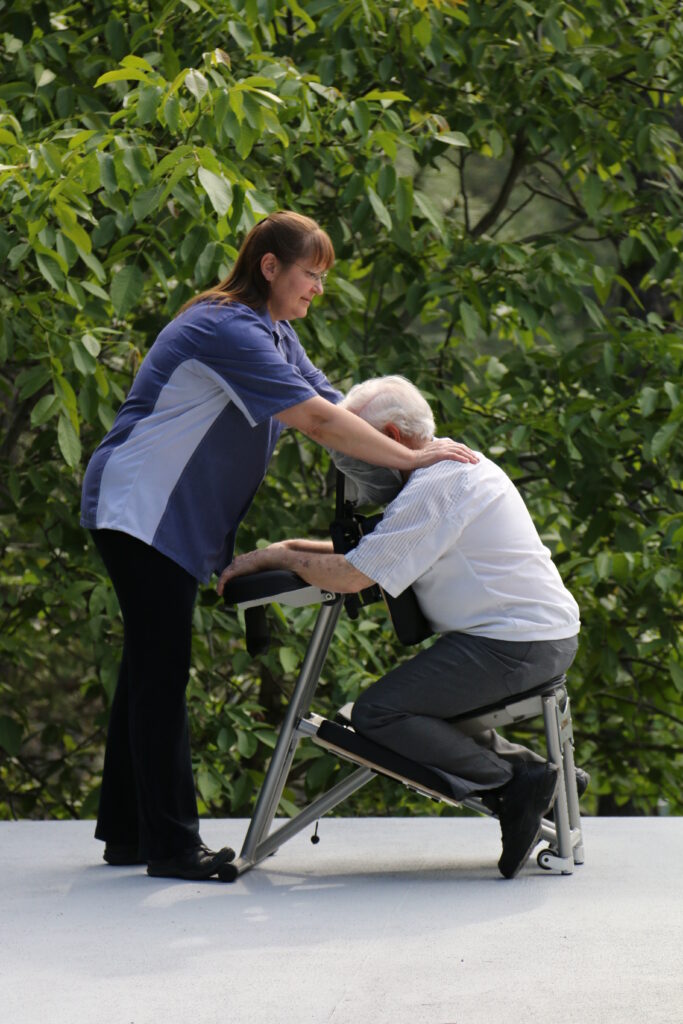Most people will experience neck pain at some point in their lives. It can become quite severe and can be caused by work, stress, or repetitive movement. Spring is here and it’s time to work in the yard and garden, this can cause muscles in the neck, shoulders and back to get very sore as they may not have had much use in quite some time.
Many people carry stress in their neck and shoulders. When this happens the muscles stay very tight and can cause constant, and sometimes severe, pain. An article on healthgrades.com by Elizabeth Beasley explains how stress contributes to chronic neck and shoulder pain.
The stress response is a blend of physical and emotional components that prime your body to run or fight when faced with danger. When the brain is triggered, the body releases cortisol, adrenaline and other hormones that prepare your body for action. Physical changes include a higher heart rate, increased blood pressure, rapid breathing and tensed muscles. When this happens repeatedly, it can cause aches, pains and irritated nerves.
This reaction to stress happens to us in small spurts all day, every day and it works well to protect us from harm. Problems start happening when you experience chronic stress. This could be chronic physical stress from standing or doing repetitive motions at your job. Or it could be chronic emotional stress like dealing with a difficult personal relationship or financial troubles. So how does this normal response to life’s daily challenges make its way to your neck and shoulders?
Stress isn’t always the cause of neck and shoulder pain, but it can certainly make even the smallest existing pain much worse. Here’s how it affects your neck and shoulders.
- Enlarges the blood vessels in your large muscle groups to allow faster oxygen delivery
- Causes you to clench and tighten muscles in the neck, jaw and shoulders
- Increases tension in the trapezius muscles that run across the top of the back
- Restricts neck and shoulder movement
- Heightens your perception of pain and makes existing pain feel worse
When you experience mental or physical stress again and again, your body is constantly prepared for battle but is never allowed to release that tension. Eventually this irritates your muscles and nerves, causing pain that can be difficult to manage because it’s difficult to pinpoint or remove your stress triggers.
One of the best and drug-free options to relieve this constant pain is massage. It not only works on the tight muscles, it also helps you to relax and promotes overall wellbeing. Massage increases blood circulation and reduces inflammation. Biochemisty research proves that the positive effects of massage therapy include decreased levels of cortisol and increased levels of serotonin and dopamine. Stretching is also helpful to keep the muscles moving and flexible and this can easily be done many times throughout the day.
Enjoy spring and remember that Creative Wellness Solutions provides a convenient massage with innumerable benefits on a comfortable massage chair.

